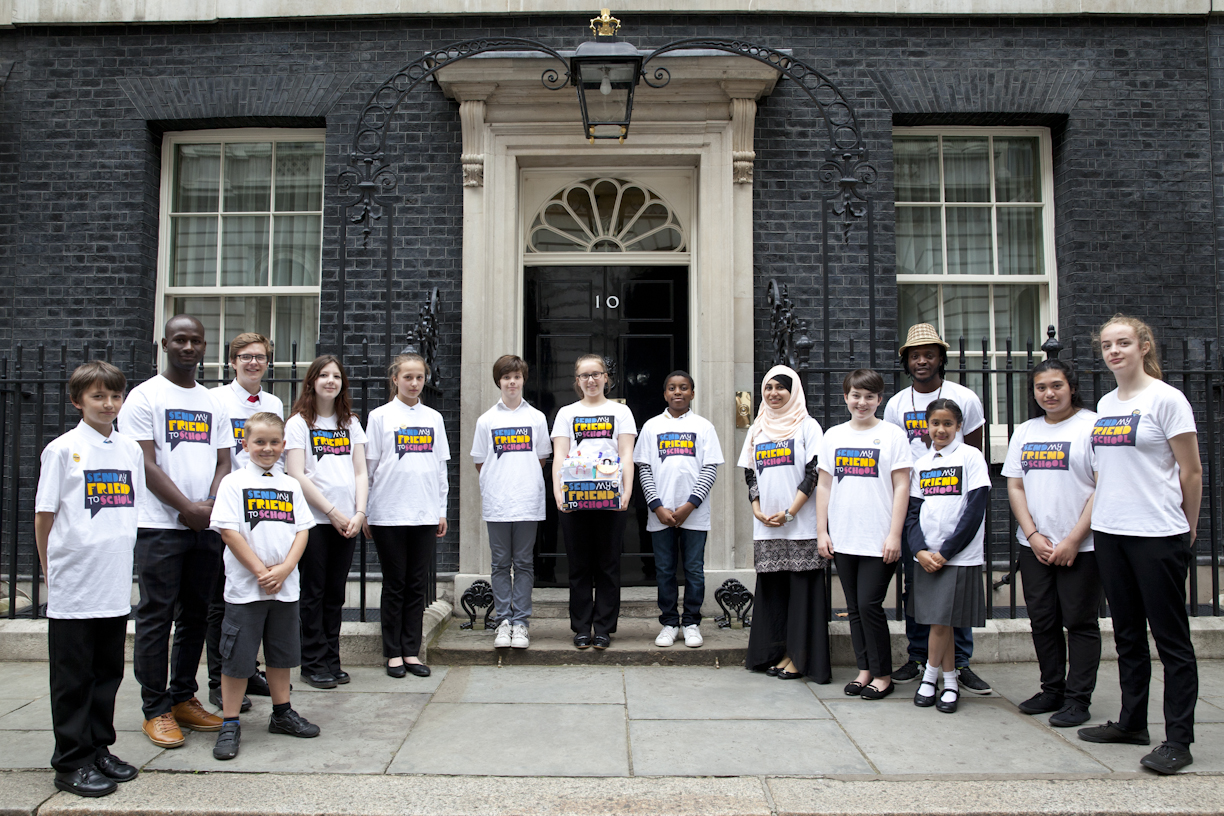At the United Nation’s General Assembly (UNGA), the UK government announced £515 million for education globally to help get over 12 million children into school.
This announcement builds on the £90 million the Prime Minister committed at the G7 Summit for education in conflict areas.
In the context of the global learning crisis fuelled in part by a serious lack of funding including education aid – and exacerbated by successive reductions in UK aid for education – this announcement shows the UK stepping up on global education at a critical time.
Whilst more money for education is urgently needed, we must also guarantee that money is spent well.
Given that one of the main elements for delivering DFID’s £515 million funding commitment is the International Financing Facility (IFFEd) – a new mechanism which is still being designed – Send My Friend here makes some key recommendations on criteria the IFFEd must meet if it is to address the needs and responsibly finance education.
UK’s commitment of £515 million for education
£215 million of the funding announcement will be spent bilaterally for education in sub-Saharan Africa. This geographic focus on Africa is welcome – the continent accounts for half of out of school children but just one quarter of aid flows for education.
The second element for delivering the £515 million is through channelling £300 million to the International Financing Facility for Education (IFFEd), a mechanism that would expand multilateral financing for lower-middle income countries through a mix of concessional loans and grants.
Education urgently needs more money now
The UK’s funding announcement could not come at a better time. Fulfilling our promise to get every child learning will require closing the serious financing gap, increasing spending on education from $1.2 trillion per year today to $3 trillion by 2030 across all low- and middle-income countries.
Despite this urgent need, global aid for education has fallen as a share of total aid, from 10 per cent to 7 per cent from 2010 to 2017.
The UK’s aid for education has, unfortunately, mirrored this global decline. Recently, published UK aid figures for 2018 show a decrease of £99 million in education aid between 2017-18, and UK bilateral aid to education is at its lowest in years accounting for just 7.4% of the bilateral aid budget.
In this context, the Prime Minister’s announcement of £515 million for education is welcome. This new money will help turn the situation for UK aid to education around, but to have any impact on closing the wider financing gap Britain must continue to increase the proportion of our aid budget on education.
We don’t just need more money for education, we need to also spend it better
Too little aid money reaches the poorest countries and the most marginalised children, while higher levels of education are often prioritised for funding over the critical early years.
Country level funding fragmentation needs to be addressed through improved donor collaboration, with a focus on minimising the transaction costs overstretched countries face dealing with multiple funders.
And aid for education must work harder to strengthen domestic resources – the most sustainable resource for development. The Education Commission estimates that 97% of the additional resources required to finance education will have to come from national governments and tax. Yet, UK aid performance on strengthening tax capacity is wildly off track and has not increased much since the Addis Tax commitment was made.
Recommendations on the International Financing Facility for Education (IFFEd)
Given the criticality of ensuring aid for education is improved, as well as increased, the Send My Friend to School Coalition lays out the following criteria for the IFFEd – one of the main elements for delivering DFID’s £515 million funding commitment:
- IFFEd must support fee-free education and reach the most marginalised children
- The determination of its funding must meet core SDG targets and standards
- IFFEd should actively leverage increased domestic financing for education and the strengthening of national education systems
- It should seek to minimise fragmentation of the global architecture for education, harmonising efforts, in particular, with GPE and ECW both internationally and at country level
- Funding for the facility should be additional and not negatively affect Official Development Assistance (ODA) for other education purposes, and must not increase countries’ debt vulnerability
The Send My Friend to School Coalition supports the UK Governments ambitions and welcomes its £515 million commitment, so long as it is well spent – satisfying the design and operationalisation criteria for IFFEd set out here.



 Send My Friend to School brings together thousands of children across the UK to speak up for the right to education.
Send My Friend to School brings together thousands of children across the UK to speak up for the right to education.